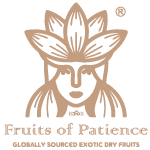The act of giving dry fruits as gifts is deeply rooted in various cultures around the world. It transcends mere gifting, encompassing tradition, symbolism, and a touch of health consciousness. This tradition holds a significant place in diverse festivities, celebrations, and social exchanges, contributing to the cultural fabric of numerous societies globally.
Origins and Historical Significance
The practice of presenting dry fruits as gifts has ancient origins, often intertwined with cultural rituals and historical significance. In many societies, the offering of dried fruits was a symbol of prosperity, hospitality, and respect. For instance, in the Mediterranean region, dried fruits were highly valued due to their longer shelf life and were often exchanged as symbols of goodwill and fertility during weddings and religious ceremonies.
Cultural Significance
- Middle Eastern Culture:
In Middle Eastern cultures, particularly during festivals like Eid, the gifting of dry fruits like dates, figs, and apricots is customary. Dates hold significant religious importance, particularly during Ramadan, being a traditional food for breaking fast due to their high nutritional value. - Indian Traditions:
In India, the tradition of exchanging dry fruits is deeply embedded in various festivals and special occasions. During Diwali, a festival of lights, dried fruits and nuts are commonly shared as a gesture of prosperity and good luck. Moreover, in Indian weddings, the presentation of dry fruit baskets symbolizes blessings for the couple’s future. - Western Customs:
Even in the West, dried fruits are prevalent during Christmas, where assortments of nuts and dried fruits are shared as gifts. The concept of a Christmas pudding, a rich and dense cake filled with dried fruits and nuts, is a well-known tradition.
Symbolism and Meaning
The act of giving dry fruits embodies various symbolisms, reflecting sentiments and wishes. The inherent nature of dry fruits, being preserved and enduring, symbolizes longevity, prosperity, and the hope for a fruitful and abundant life. The nutritional value of dry fruits further adds significance, signifying good health, vitality, and well-being.
Health Benefits and Modern Appeal
The contemporary appeal of gifting dry fruits extends beyond tradition; it aligns with health-conscious choices. Dried fruits are known for their nutritional richness, being packed with essential vitamins, minerals, and fiber. This health aspect makes them a favorable choice for gifting, especially in a time when people are increasingly mindful of healthier dietary options.
Sustainability and Eco-friendly Aspect
The notion of sustainability and eco-friendliness has also contributed to the prominence of dry fruit gifting. With the growing awareness of reducing waste and embracing sustainable practices, dry fruits serve as an eco-friendly gifting option. They align with the principles of minimal wastage and offer a natural, preservative-free alternative to processed gifts.
The Modern Evolution
While the essence of gifting dry fruits remains rooted in tradition, the modern era has seen a fusion of innovation and tradition. Creative packaging, customizable assortments, and unique presentations have infused a contemporary touch to this ancient practice. From elegant gift boxes to personalized assortments, the presentation has become as important as the content, making it a thoughtful and tasteful gift choice.
Global Influence and Adaptation
The tradition of dry fruit gifting has transcended borders, adapting to different cultures and contexts. Whether it’s the exchange of dried figs in the Mediterranean, dates in the Middle East, or mixed nuts and fruits in the West, the gesture of presenting dry fruits has found a place in global exchanges, reflecting unity in diversity.
Conclusion
The act of gifting dry fruits carries a profound historical and cultural significance, embracing tradition, health consciousness, and symbolic meanings. It not only reflects generosity and goodwill but also symbolizes well-being and sustenance. The tradition, while deeply rooted in the past, continues to evolve, adapting to modern preferences and global sensibilities. As a timeless gesture of goodwill, the gifting of dry fruits remains a cherished practice, enriching cultural celebrations and personal connections across the globe.



